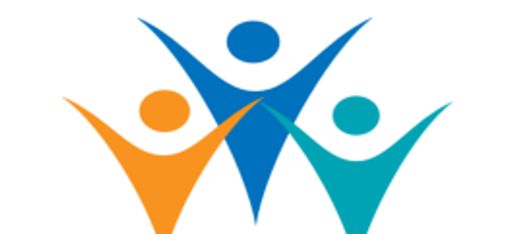Downloads
Laws and Updates
Minimum Wages and Salaries
Statewide Minimum Wage
On January 1, 2026 California’s minimum wage will increase to $16.90 per hour for all employers regardless of size.
Exempt Employee Minimum Salaries and Wages
The minimum salary threshold for exempt employees (two times the STATE minimum wage) will increase to $1,352 per week ($70,304 per year).
The minimum rate for exempt computer software employees is $58.85per hour. The minimum monthly salary exemption is $10,214.44 and the minimum annual salary is $122,573.13.
Fast Food Chains: $20/hour
Health Care: Ranges from $18.63 to $23.00/hour
Check the local city website for mid-year updates. Click on the city to be directed to their website. (updated with July 1, 2025 and January 1, 2026 wage)
Municipal minimum hourly wage:
- Alameda: $17.46 (July)
- Belmont: $18.95 (January)
- Berkeley: $19.18 (July)
- Burlingame: $17.86 (January)
- Cupertino: $18.70 (January)
- Daly City: $17.50 (January)
- El Cerrito: $18.82 (January)
- Emeryville:$19.90 (July)
- Foster City: $17.85 (January)
- Fremont: $17.75 (July)
- Half Moon Bay: $17.91 (January)
- Hayward: $17.79 (26 or more employees) $16.90 (1-25 employees) (January)
- Long Beach: (Hotels with 100 or more guest rooms) $18.16
- Los Altos: $18.70 (January)
- Los Angeles City: $17.87 (July) - Check your address here: https://neighborhoodinfo.lacity.org/
- Los Angeles City Hotels (Hotels with 60 or more guest rooms) $21.01
- Los Angeles County $17.81 (July) - Check your address here: https://www.lavote.gov/apps/precinctsmaps
- Malibu: $17.27 (July)
- Menlo Park $17.55 (January)
- Milpitas: $18.20 (July)
- Mountain View: $19.70 (January)
- Novato: $16.90 (1-25 employees) $17.46 (26-99 employees) $17.73 (100 or more employees) (January)
- Oakland: $17.34 (January)
- Palo Alto: $18.70 (January)
- East Palo Alto: $17.90 (January)
- Pasadena: $18.04 (July)
- Petaluma: $18.31 (January)
- Redwood City: $18.65 (January)
- Richmond: $19.18 (January)
- San Carlos: $17.75 (January)
- San Diego: (city) $17.75 (January)
- San Francisco: $19.18 (July)
- San Jose: $18.45 (January)
- San Leandro: $16.90- State minimum wage since there has been no scheduled increase
- San Mateo: (city) $18.60 (January)
- San Mateo (county) $17.95 (January)
- Santa Clara: $18.70 (January)
- Santa Monica: $17.81 (July)
- Santa Monica (hotels) $22.50
- Santa Rosa: $18.21 (January)
- Sonoma: $18.47 (26 or more employees) $17.38 (25 or fewer) (January)
- South San Francisco: $18.15 (January)
- Sunnyvale: $19.50 (January)
- West Hollywood $20.25 (January)
- West Hollywood (Hotel workers) $20.22
Notice/Posting Requirements
Each of the above local minimum wage ordinances have notice, posting and recordkeeping requirements. Failure to comply with these obligations may subject you to fines, penalties or even civil action. Make sure you post them in areas that can be seen by all employees. You should provide a physical copy of the poster to your remote employees as well.
AB 5 - ABC Test
For a worker to be properly classified as an independent contractor (sometimes called a “1099 contractor” or “1099 employee”), they must pass certain tests under federal and state law.
For companies employing workers in California, the DOL rule won’t alter their approach to classifying workers as employees or independent contractors because California adheres to a stricter test for determining employment status.
The test under California law presumes an individual is an employee unless the hiring entity demonstrates each of the following criteria:
- That the worker is free from control and direction of the hiring entity in connection with the performance of the work;
- That the worker performs work that is outside the usual course of the hiring entity’s business; and
- That the worker is engaged in an independent business of the same nature as the work performed for the hiring entity.
Employers can review additional guidance on the new rule from the DOL on its Frequently Asked Questions page.
AB 2257 was signed on September 4, 2020 to address items with AB 5. AB 5 restores some of the freedom to freelancers. There are now more than 75 exceptions to California's independent contracting ban.
Click Here for all the information.
Sexual Harassment & More
For Free Training CLICK HERE
By January 1, 2020, employers with five or more employees must provide one hour of sexual harassment prevention training to non-supervisory employees and two hours of such training to supervisors, and additional training is required every two years after that.
- Existing law was expanded to include elected officials, lobbyists, directors, producers and others in the codified list of those who can be held liable for professional relationship sexual harassment.
- Two new California laws were enacted to protect legislative staffers and lobbyists from retaliation when they speak out about sexual harassment and other misconduct.
- Employers can now be liable for harassment by non-employees on any basis protected under FEHA, not just sexual harassment.
- A new California law makes numerous changes to California's Fair Employment and Housing Act (FEHA) relating to workplace harassment claims. .
- Under a new California law, any provision in a contract or settlement agreement will be unenforceable if it prohibits a party to the contract from testifying about criminal conduct or sexual harassment in an administrative, legislative or judicial proceeding.
- Another new California law prohibits confidentiality provisions in settlement agreements where sexual harassment, assault or discrimination has been alleged. See
- Talent agencies are now required to provide sexual harassment prevention training and reporting resources to artists they sign for representation.
- Under a new amendment to California's Civil Code, California employers and victims of sexual harassment are now better protected from liability for defamation by an alleged harasser after a complaint of sexual harassment has been made.
Copyright © 2018 California HR Connection - All Rights Reserved.
